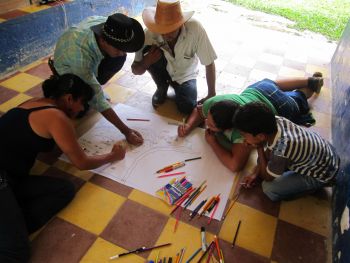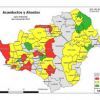Social Stoplighting: Participatory Methods for Post-Conflict Reconstruction

Social Stoplighting is a participatory planning method that combines community assessment workshops with digital geo-referenced maps. The goal is to create tools that facilitate participatory politics and community development, tools that can be scaled up for national or international policy making and scaled down for village level planning, monitoring and evaluation.
The project has just launched a website to share the history, methods, problems, and future possibilities of this project. It is the result of a four year collaboration between municipal officials in San Carlos, Colombia, anthropologists from the University of Antioquia and Duke University, and undergraduate students at Duke participating in the Platforms and Passageways project.
Referenced People
|
Graduate Student, Cultural Anthropology
|



